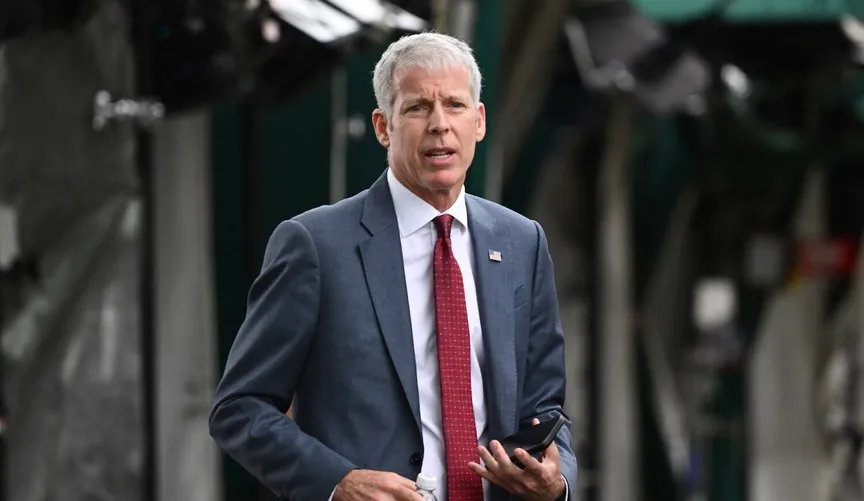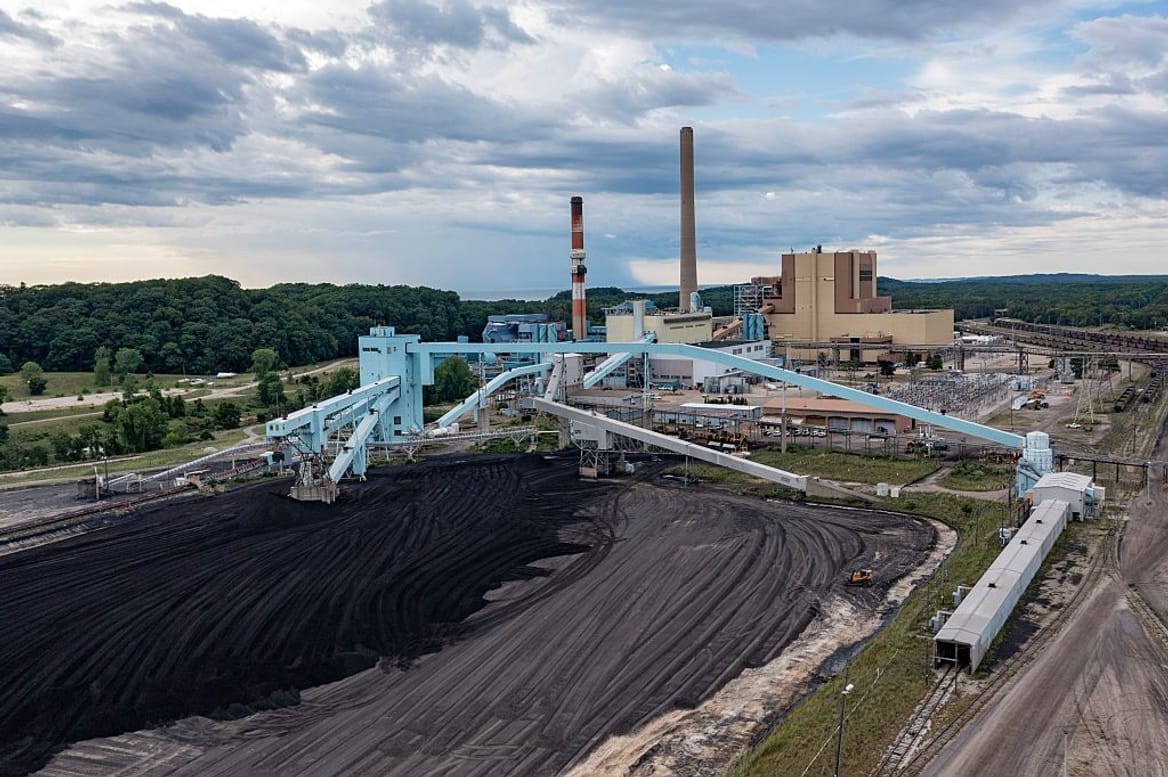
The Trump administration has extended its order to keep a Michigan coal-fired power plant running until November, well past its planned closure in the spring. It’s the latest move in a push to force dirty, expensive power plants to keep operating, which experts warn could saddle Americans with billions of dollars in unnecessary electricity costs.
Just days before the J.H. Campbell plant was set to shutter in May, the administration ordered it to stay open for 90 days — an unprecedented federal intervention in state-regulated utility operations. That order has already cost Midwest utility customers millions, and Michigan’s top utility regulator estimates that keeping the aging plant open longer could burden consumers with more than $100 million in unnecessary costs.
The Department of Energy’s Wednesday extension adds weight to concerns from states, environmental advocates, and clean-energy industry groups that the administration intends to wield emergency powers meant to address true threats to grid reliability to prevent any fossil-fueled power plant from closing nationwide. Doing so would cost consumers between $3 billion and nearly $6 billion per year by the end of President Donald Trump’s term, per an August report from consultancy Grid Strategies.
“The order purports to override the considered judgment and careful work of many federal, state, and regional bodies who actually have authority to keep the lights on,” Michael Lenoff, senior attorney for nonprofit Earthjustice, said in a Thursday statement.
Lenoff is leading litigation against the DOE’s initial order from May. Michigan’s Attorney General Dana Nessel has also challenged that order in court, after the agency failed to respond to requests from environmental groups and eight state utility commissions seeking a rehearing of the decision.
To keep fossil-fueled plants running, the Trump administration is taking advantage of Section 202(c) of the Federal Power Act, which gives the DOE the authority to take temporary action to address nearterm grid-reliability emergencies. But many groups say there is no such crisis: Wednesday’s order from Energy Secretary Chris Wright, a former gas industry executive and well-known denier of the climate-change crisis, “points to no evidence of an imminent emergency requiring Campbell to keep racking up the bills paid by customers in Michigan and nearby states,” Lenoff said.
“Despite already forcing the plant to run for 90 days, [Wright] points to not a single instance where the plant was needed to keep the lights on,” Lenoff said.
Consumers Energy, the utility that owns J.H. Campbell, reported in late July that it cost $29 million to operate the plant in the first five weeks of the DOE’s stay-open order.

“The coal-fired J.H. Campbell plant has reached the end of its life. Michigan cannot afford to let political interference prolong its operation,” Justin Carpenter, policy director for the Michigan Energy Innovation Business Council, said in a Thursday statement. “So-called temporary extensions only keep an unnecessary, inefficient plant alive, extending its pollution and high costs.”
Later in May, the DOE also used its Section 202(c) authority to order the Eddystone oil- and gas-burning plant in Pennsylvania to stay open through the summer. It was set to close this year too, and, as with the J.H. Campbell plant, utility regulators and regional grid operators had determined that shutting it down would not threaten grid reliability. The DOE’s 90-day order for the Eddystone plant is set to expire in late August.
Lawmakers, advocates, and industry experts are increasingly concerned that the Trump administration intends to apply its Section 202(c) authority more broadly. In particular, critics fear a DOE report issued in July will be used to justify future orders — even though its methodology is severely flawed.
The document was written to comply with an April executive order from Trump that tasks the agency with taking unilateral authority over power-plant closures, circumventing decades-old structures that utilities, state and federal regulators, and regional grid operators follow to determine when power plants can close or when they must stay open.
Earlier this month, clean-energy trade groups and nine Democrat-led states filed rehearing requests with the DOE asking it to redo the July grid-reliability report. They argue the study uses cherry-picked data and flawed assumptions to declare that the U.S. faces a hundredfold increase in grid blackout risks absent federal intervention in power plant operations.
Running aging power plants is expensive for utility customers, both in terms of direct costs on energy bills and the indirect costs of crowding out new, cheaper renewables. Utilities and independent energy developers will build less solar, batteries, and wind power if those plants stay online.
The DOE’s moves come as electricity prices are rising at more than twice the rate of inflation across the country. Wright and Trump have falsely claimed that renewable energy is to blame for that trend.
“By illegally extending this sham emergency order, Donald Trump and Chris Wright are costing hardworking Americans more money every single day for a coal plant that is unnecessary, deadly, and extremely expensive,” Laurie Williams, director of the Sierra Club’s Beyond Coal Campaign, said in a Thursday statement. “While Donald Trump and Chris Wright decry this made-up ‘energy emergency,’ they are simultaneously limiting our access to cheap, reliable, renewable energy.”